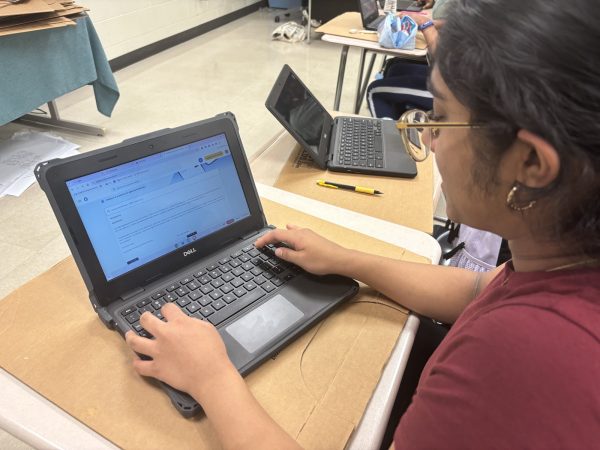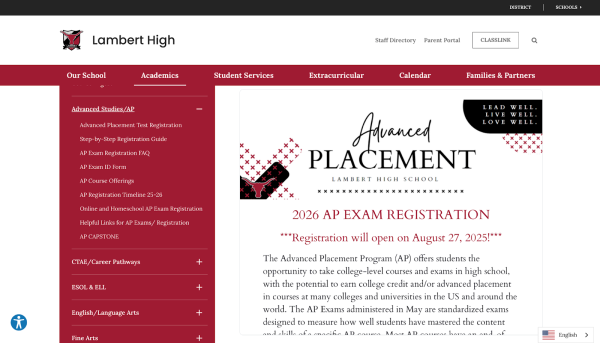ChatGPT: Man’s New Best Friend or Foe?

An image of the ChatGPT logo. Taken from Zapier.com from an article written on January 19, 2023. https://zapier.com/blog/chatgpt-marketing-writing/
ChatGPT is a powerful language model developed by OpenAI that generates human-like text. With its impressive capabilities, ChatGPT has the potential to revolutionize the way we interact with technology and has been utilized in a variety of applications, from chatbots to language translation. However, as with any new technology, there are also concerns about its impact on society and the potential for misuse. In this opinion article, we will explore the potential benefits and drawbacks of ChatGPT and consider its implications for the future.
Did you think twice when reading this opening paragraph? Chances are, you wouldn’t have noticed anything different about this well-written, articulate passage above. That’s because it was the output of ChatGPT when prompted “Write an introduction paragraph for an opinion article about ChatGPT.” These powerful capabilities are a clear sign of ChatGPT’s potential and advancement in the field of AI, but as stated by the machine itself, the clear and present dangers that come with such predictive technology are a major warning sign to keep in mind. The polarizing nature of AI systems, such as ChatGPT, makes for an interesting debate with regards to its implementation in everyday life and deserves a thorough analysis with all the positives and negatives that this blazing new technology possesses.
ChatGPT has many advantages and features that put it in a promising light for further advancement in the future. For one, it represents one of the most sophisticated and functioning models in the field of AI to date, and it possesses many essential capabilities that previous models did not. One of which is the degree to which it can interact and hold human conversation, as well as the manner in which it responds to questions on a myriad of topics with detail and depth. This combination of features is one of the reasons why ChatGPT gained so much traction since its release, and there is no shortage of users looking to take advantage of this new technology.
“I think it really brings AI technology to the people; it’s more effective and we can use it in more ways now,” Lambert sophomore Saud Kasumbi said. “It’s more versatile, as other AI is pretty limited with what you can do, but with [ChatGPT], you can ask anything, and it has tons of information that it can give you answers from.”
Clearly, the potential that ChatGPT holds, even in such early stages of development, shows why it is primed as such a useful tool. The accessibility that it offers to the general public is superior to any other preceding artificial intelligence, and the manner in which it can offer responses to a myriad of different queries makes it a captivating technology for the future. It proves to have many practical uses, as the model takes ideas or prompts and returns detailed, innovative responses for the user. Many students and creators across a variety of disciplines have found this helpful in terms of generating ideas and potential frameworks for a project or solution, paving the way for novel creations like AI-generated scripts, science fair ideas, TV shows and much more. As a whole, ChatGPT set a new benchmark for AI technology and, from the capabilities it has demonstrated thus far, has the potential to revolutionize society.
While the excitement around AI and models such as ChatGPT is well-deserved, it is still crucial to remember that such models have major drawbacks that should be considered when used. One such issue is that all AI – ChatGPT included – only absorbs data and ‘knowledge’ through the body of information that it is trained on, and in this case, that would be the corpus of articles, publications and websites available on the internet. This means that any biased, incorrect or potentially harmful information that it digests from the vast depths of the World Wide Web can be returned in ChatGPT’s responses, as it simply reflects and regurgitates whatever information is fed to it. This has been reported by numerous users, as many brought light to instances of completely untrue or even racially bigoted responses provided by the AI model. Another major concern surrounding the use of ChatGPT is academic dishonesty. Many students utilize the model to complete their assignments, simply inputting an essay prompt or coding problem into the system and submitting the generated responses. This has raised widespread concerns of cheating and the potential death of education as it stands today, and at the center of these concerns are the teachers grading this new wave of plagiarized assignments.
“At this point, seeing that students can get the research and have a research paper or a topic actually done for them by this AI program, I will be grading…harder,” Literature and Dramatic Writing teacher Kerry Langley said. “I will also be looking at the writing style, because if I know that a student writes a certain way, and they turn in something that is written a different way, I know that they did not write it…I would call that plagiarism.”
Langley’s reflections exemplify the new reality that teachers must face with the threat of receiving work put into systems like ChatGPT, and this is changing the way many teachers at Lambert are running their classrooms. With the possibility of grading plagiarized essays, AI-generated science projects and coding assignments completed by ChatGPT, it is no surprise that they are further scrutinizing student work given the dicey circumstances. While one would expect this response in retaliation to fears of ChatGPT-enabled cheating, AP Human Geography teacher John McCormick took a vividly different perspective on the issue.
“The new platforms would make plagiarizing easier, but the plagiarism’s always been there,” McCormick explained. “It’s just expediting the plagiarizing…they are able to get away with the same thing at a faster rate. If I had seven encyclopedias…and I plagiarized without citing, it’s no different than the AI – it’s just easier.”
This places some of the blame with ChatGPT and ethical concerns on the ethical concerns themselves, as this new technology could simply just be another medium with which to carry out academic dishonesty. Students have found ways to get around assignments for ages preceding the launch of ChatGPT, and if one uses the tool for malicious purposes, the blame should be placed on the person rather than on the technology itself. This puts yet another viewpoint into the myriad of arguments and beliefs surrounding the use of ChatGPT, and makes for an interesting debate regarding just how much influence it should have in our daily lives.
ChatGPT was only released on November 30, 2022, but in less than two months, the internet world has been turned upside down with its high-profile launch. While many argue that this is just the beginning of an inevitable digital future for humanity and that AI and related technologies are intended to advance society, others counter that it could end up contributing to just the opposite. Its impressive features notwithstanding, AI technology is something that should be considered carefully with regards to how it is implemented in our everyday lives. The social and ethical concerns that come with the development and insertion of such models are extremely relevant and need to be addressed alongside the positives to create a brighter, safer digital future for all.
Your donation will help support The Lambert Post, Lambert High Schools student-run newspaper! Your contribution will allow us to purchase equipment and cover website hosting costs.











